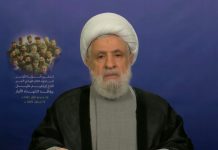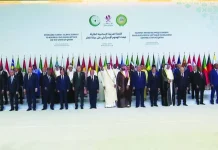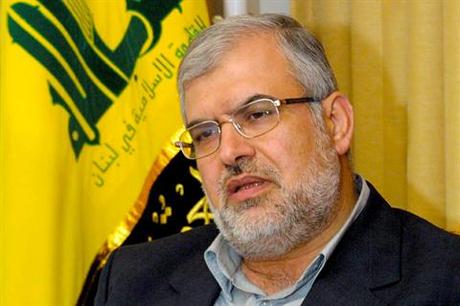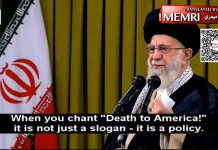Hezbollah and Arab Shiites in Gulf countries
Kamel Al-Khatti/Al Arabiya/October 17/17
When it comes to the impact of Hezbollah’s role on politics and security in the Middle East, it is necessary to first talk about Iran’s role in detail. For all intents and purposes, Hezbollah is the political and military arm of the theocratic regime in Iran and is considered the vanguard among ‘the followers on the path of Al-Imam’.
In fact, Hezbollah cadres are the most well trained and best prepared among members of this broader movement — the followers on the path of Al-Imam’ — and has started organizing ‘sleeper cells’. Although other followers of this movement are not on par with the level of organization and intelligence as Hezbollah, the broader movement provides the social depth required to facilitate the work of Hezbollah cadres. For this reason, there is a need to study both of these constituents of the movement and to what extent the roles of the two overlap with each other in the public arena among the Arab Shiite minorities of Gulf countries, especially among Saudi Shiites.
Iran and Arab Shiites: Divergent interests
It is important here to recount an incident that occurred in 1979, which covers aspects that remain valid even today. In that year, one of Al-Husseini’s preachers in Al-Qatif warned his listeners against responding to Khomeini’s call to spread his Islamic Revolution. He told his listeners that Khomeini and his cohorts were leading their country with interests that contradicted the interests of countries with which the Arab Shiites identify themselves with. The Iranian discourse addressed members of the Shiite sect, just as an Iranian political ploy to threaten the security and stability of its neighbors by inciting their Shiite citizens to rise up against the ruling dispensation in their countries, on the pretext that this protest sought equality and justice. This preacher was a distinguished luminary of Al-Qatif and was among the prominent Arab intellectuals. However, he was ostracized for expressing his adverse opinion about Khomeini. Rumor-mogering was used as a weapon for the moral assassination of this preacher. Thus, rumours were circulated about his alleged statement that Ben-Gurion’s shoes were purer than Khomeini’s beard.
There have been several similar instances when Iranian media has sought to manipulate the perceptions of the Arab Shiite. Most efforts of Iranian propaganda proved effective as the response to mitigate its message came from a limited number of traditional religious scholars. These scholars used conventional means to advise the new generation against politicizing religion and sacred religious events, as this would desecrate the sanctity of such solemnities and upset the authorities entrusted with maintaining order. However, these attempts largely failed to disrupt Iranian efforts. It is difficult for individual efforts to succeed while facing institutional efforts supervised by a state.
Revolutionary Iran did not hesitate to use the Arab Shiite minorities as one of its main weapons and for this it relied on its elite cadres to be at the vanguard for directing public opinion to defend its positions in the Arab Shiite communities.
Revolutionary Iran did not hesitate to use the Arab Shiite minorities as one of its main weapons and for this it relied on its elite cadres to be at the vanguard for directing public opinion to defend its positions in the Arab Shiite communities. These elite forces were organized under the broad framework, which were referred to at the beginning as ‘The followers of the path of Al-Imam’. Under this broad heading, there are sub-headings of more elite groups in terms of recruitment and training.
Hezbollah’s GCC outreach
Of these groups, the most well-trained and well-organized factions operate under the aegis of Hezbollah in its various geographical extensions, such as ‘Al-Hijaz Hezbollah’, ‘Kuwaiti Hezbollah’, and ‘Iraqi Hezbollah’. In terms of the broad umbrella of the ‘The path of Al-Imam’, the name of the Kuwaiti ‘Abbas bin Nakhi’ comes to mind while surveying the early stages of the movement. Ben Nakhi was a colonel in one of the formations of the Kuwaiti armed forces, but he left his military service to serve with The Khomeinist movement. However, he later retracted from his commitment to Iran and adopted the traditionalist doctrine, particularly after the death of Khomeini and the ascension of Ali Khamenei as the leader of the Revolution.
During the period of the Iran-Iraq war, security authorities in the Eastern region arrested a group of Saudi Shiites from Al-Ahsa. They were Aramco employees who were charged with leaking schemes and coordinates of the company’s network stations. The group was headed by Aramco’s Director of Communications, the highest rung in the mid-level management hierarchy. Following investigations, those apprehended confessed to their crime and admitted that their motivation was to assist Iran in its war against Iraq and against Gulf countries allied with Iraq.
Out of the 16 arrested, only one belonged to Hezbollah. He was not the head of the group, but played the role of the instigator. The head of the group and other members risked their lives and the security of their country in support of Iran. After investigations, the Emirate of the Eastern Province summoned a number of prominent Shiites and showed them video and audio confessions made by members of the group. All those apprehended were eventually released following a special royal amnesty. None of them was imprisoned for more than two years!
Members of Hezbollah’s regional branch had its own set of militants. These members were assigned with the task of initiating actions that benefited Iran. The kind of actions carried out by sections of the Khomeini movement, whether those of the ‘The followers of the path of Al-Imam’ or ‘Hezbollah’ movement, varied in their scope and seriousness. These actions included hindering local religious men from choosing their jurisprudential references by influencing them into choosing doctrinal references in support of the ‘Vilayat Al-Faqih’ doctrine in order to tighten control of Arab Shiite communities, directing the sentiments and behavior of the Shiite Arab communities in accordance with Iranian interests, conducting moral assassination of Shiites Sheikhs and dignitaries who did not subscribe to the doctrine of the Vilayat-e-Faqih doctrine. The actions also included conducting violent attacks — such as assassinations and bombings like the one at Sadaf company in Jubail Industrial City east of Saudi Arabia, the mayhem caused in 1989 during the pilgrimage season in Mecca, the bombing of al-Ju’aima laboratory, the failed attempt to blow up the escalator tower at the RasTanura oil-gas plant and the bombing of Al-Khobar Towers in 1996.These crimes were carried out by citizens of Gulf countries, recruited by Iran for more than one reason. Their most important reason was to cause a trust deficit between the Shiite minorities in Gulf countries and their governments, as well as with the majority Sunni Arab population. The crisis of trust has already taken place and along with other factors has contributed toward isolating the Shiite minorities from their Sunni Arab community, Thus, Arab Shiite minorities grew closer toward Iran because of a rising sense of alienation of these minorities from their national community, which instilled in them a sense of insecurity.
Inoculating domestic politics from outside interference
Iran has invested in fostering discrimination that has harmed the cause of Arab Shiite minorities. Leftists participating in this investment also failed, which turned it into opponents of present regimes, but they never had a clearly defined renaissance project.
I would like to conclude with two recommendations. The first one is to study the social issues faced by members of the Arab Shiite minorities in Gulf countries, who sympathize with Iranian policies, especially those in Saudi Arabia. The security aspect of this issue is handled by the concerned authorities with clear responsibilities, but the social aspect remains unclear. It is not possible to express an opinion about it without conducting thorough research and study. A specialized research would reveal to us the best possible options for closing the gaps through which Iran influences Shiite minorities in Gulf Arab states. The second recommendation relates to inoculating the local socio-political dynamics from regional influences, though I admit I do not know how one could implement such a plan of inoculation.
___________________
Kamel Al-Khatti is a Saudi writer and researcher.





















